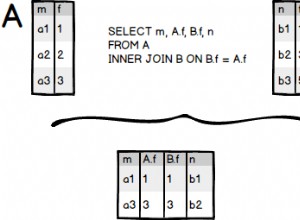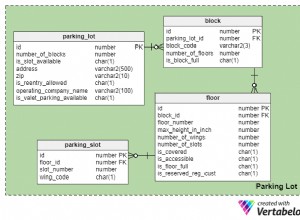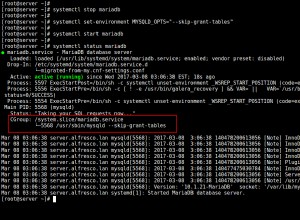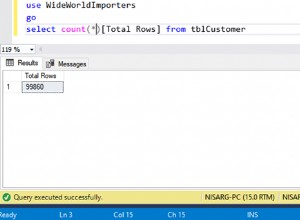VARCHAR2 sono limitati a 4000 byte. Se ricevi questo errore
Quindi è abbastanza chiaro che la concatenazione supera i 4000 byte.
Ora cosa fare?
La tua prima soluzione per utilizzare invece CLOB è corretta.
select TO_CLOB(a)|| TO_CLOB(b)|| TO_CLOB(c) || TO_CLOB(d)
Sembra che il tuo vero problema sia il salvataggio su file
Anche se non hai pubblicato come salvare il clob risultante in un file, credo che tu non lo stia facendo correttamente. Se provi a salvare su file nello stesso modo in cui lo stavi facendo con VARCHAR2, stai sbagliando.
Devi prima usare dbms_lob.read per leggere il clob dal database, quindi utilizzare utl_file.put_raw per scrivere su file.
DECLARE
position NUMBER := 1;
byte_length NUMBER := 32760;
length NUMBER;
vblob BLOB;
rawlob RAW(32760);
temp NUMBER;
output utl_file.file_type;
BEGIN
-- Last parameter is maximum number of bytes returned.
-- wb stands for write byte mode
output := utl_file.fopen('DIR', 'filename', 'wb', 32760);
position := 1;
select dbms_lob.getlength(yourLob)
into len
from somewhere
where something;
temp := length;
select yourLob
into vlob
from somewhere
where something;
IF len < 32760 THEN
utl_file.put_raw(output, vblob);
-- Don't forget to flush
utl_file.fflush(output);
ELSE -- write part by part
WHILE position < len AND byte_length > 0
LOOP
dbms_lob.read(vblob, byte_length, position, rawlob);
utl_file.put_raw(output,rawlob);
-- You must admit, you would have forgot to flush.
utl_file.fflush(output);
position := position + byte_length;
-- set the end position if less than 32000 bytes
temp := temp - bytelen;
IF temp < 32760 THEN
byte_length := temp;
END IF;
END IF;
END;




